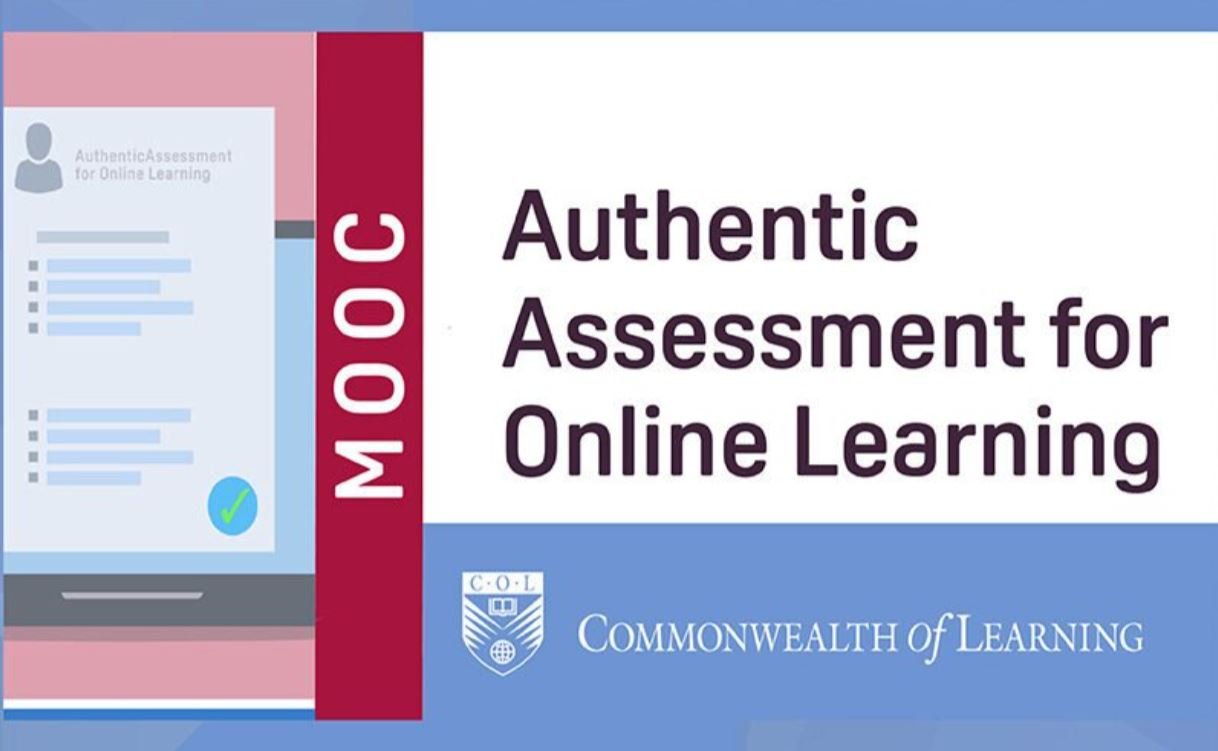Executive Summary
Authentic Assessment for Online Learning (AAOL) is a massive open online course (MOOC) first offered through the Commonwealth of Learning May 9 – June 3, 2022 using the mooKIT platform developed by the Indian Institute of Technology, Kanpur. The course curriculum was initially drafted by Dr. Dianne Conrad and revised by Dr. Jason Openo in the Winter of 2022. AAOL introduced the theory and practice of authentic assessments as the heart of the learning experience, with an emphasis on how authentic assessments intersect with academic integrity and various forms of human diversity.
The final curriculum for the four-week MOOC was provided by content expert Dr. Jason Openo, co-author of Assessment Strategies in Online Learning: Engagement and Authenticity (2018). AAOL explored the concept of learner-centred design for online assessment in higher education using short videos, open access readings, interactive forum discussions, and a learning portfolio assignment designed to model the characteristics and qualities of authentic assessments. Aligned with the theory of constructivism and authentic assessment, AAOL explored the changing nature of work in a digital age and the competencies and skills needed in the contemporary workplace, focusing on assessment strategies that engage and motivate learners in the e-learning environment and promote both academic integrity and deep learning. The course provided an overview of the fundamentals of creating learner-centered digital assessment through 21st century examples using the 5-dimensional framework for authentic assessment as both a tool for diagnosing existing assessments for authenticity and as a design template for new assessments.
The course was divided into 4 units. Unit 1 explored how the COVID-19 pandemic disrupted traditional forms of assessment and provided an opportunity to rethink assessment practice in postsecondary education. Unit 2 explored the intersection of authentic assessment and academic integrity. Unit 3 highlighted how authentic assessment is a values-based, context-dependent approach that can be applied in different cultural contexts, and how the values of authentic assessments overlap with and support Universal Design for Learning (UDL) principles. Unit 4 reviewed the challenges of moving towards more authentic assessments using practical examples from a wide variety of disciplines. A full outline of the curriculum is included in the final report.
2,541 individuals registered for AAOL, demonstrating the timely appeal of this learning topic. 1,522 active participants were drawn from all over the world, with the greatest concentrations in India (409), Nigeria (281), Kenya (243), Ghana (193), South Africa (132) and Malaysia (125).
An overwhelming majority of students were either postgraduates (1,192) or doctoral level educators (528). An overwhelming majority came from academic institutions (1,467) or governmental institutions (385).
There was a strong response to AAOL, and AAOL was well-received by participants. The following report documents the strong response to AAOL, suggesting that authentic assessment in online learning is a timely educational development topic, and that the instructional team provided a high-quality learning experience modeling best practices in online learning design. The report concludes with several learnings that may be used to refine this course’s development and the development of future of MOOCs, including comments on the mooKIT platform, and learner behaviour in a MOOC within the context of academic integrity.
Participants submitted 358 pre-course surveys and 220 course evaluations. Respondents to an end-of-course survey (220) expressed a high level of satisfaction with the course, with 95.1% agreeing or strongly agreeing to a statement that learners got what they wanted out of the MOOC, and 99% agreeing or strongly agreeing to a statement that they had gained a greater understanding of authentic assessments.[JFA1] As the raw responses to the survey indicate, the diverse array of learners valued different learning elements of the course, including the strong teaching presence of the instructional team, the curricular focus on the 9 Principles of Good Practice in Assessing Student Learning, the unit on academic integrity, and the practical steps of designing authentic assessments with UDL principles in mind. Participants specifically cited the recorded lectures, the reading materials, and the community as important elements that contributed to their learning.
AAOL was designed for digital learning enthusiasts, senior managers, instructors, and others who are interested in building knowledge, competencies and skills that are usable in or transferable to the postsecondary workplace. The forums and the assessments offered a choice to participate in the course as a faculty member or as a leader within an academic institution (e.g., chair, dean, administrator). Strong participation in the varied pathways of the AAOL MOOC suggests learner choice held value, and that multiple levels of institutional influence are required to support the move to more authentic assessments.
Two types of certificates were available for participants of AAOL, a Certificate of Participation and a Certificate of Completion, which were granted according to participants’ level of participation and completion of assessment activities. The Certificate of Completion was awarded to participants completing a minimum of 60% on all 4 unit quizzes, the completion of the learning journal to required specifications, and meaningful participation in a minimum of 4 forum discussions. Certificates of Participation were awarded to those who received a minimum of 60% on all 4 quizzes and meaningful participation in at least 3 forum discussions.
There were a total of 376 certificates issued: 235 Certificates of Competency and 141 Certificates of Participation, for a total certification rate of 14.2%.
The following report elaborates upon the curriculum, the participants’ experience, and reflections from the instructional team for growth and improvement of the CoL’s future MOOC offerings.
